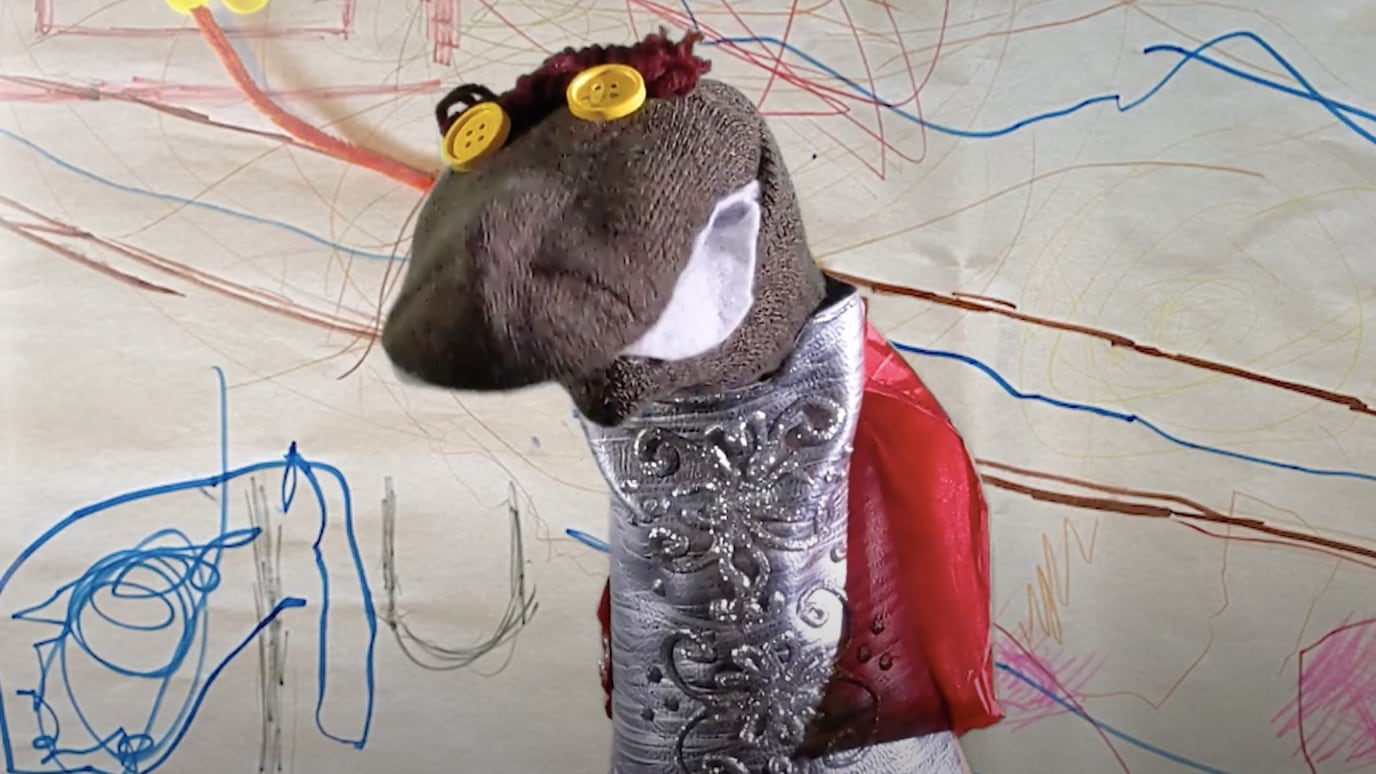Have you ever watched a production of Shakespeare’s Titus Andronicus and thought, “This would be so much better with sock puppets”?
If so, the Canon Shakespeare Company has you covered. Its latest production, Titus Andarnicus, populates the Bard’s notoriously bloody play with a cast of sock puppets, who take on a narrative that includes mutilation, rape and a character severing their own hand.
“This is one of those uniquely ‘pandemic’ artistic projects,” said Stephanie Crowley, who conceived Titus Andarnicus, in a press release. “I don’t think anyone could have given a project like this the time and support it needed during ‘normal’ times. Each of us involved in the production was doing something we’d never even tried before—sometimes multiple things.”
Titus Andarnicus, which is available for unlimited streaming on YouTube with a donation to the Canon Shakespeare Company, is set in the Roman empire. The plot involves the title character returning home after conquering the Goths, little dreaming that the Queen of the Goths is seeking revenge.
The play, which compresses the original story to 90 minutes, has been in the works for two years. It was adapted by Alec Henneberger, co-founder of the Canon Shakespeare Company, who sees a connection between the Bard’s vision and the company’s mission.
“The Canon’s overarching mission is to pull Shakespeare down from the pedestal,” Henneberger added. “People have this notion of his work being high-brow ‘Art’ full of poetry and philosophy. But in reality, alongside those, we also find sex and violence, romance and revenge, slapstick clowning, terrible puns, and the greatest collection of dirty jokes ever assembled. And putting it into puppet form just makes it feel even more user-friendly, and maybe gives people a well-deserved laugh or two.”

The Canon Shakespeare Company is relatively new to Portland’s theater scene. Its first production, Hamlet, debuted in 2020. This April, it will stage The Comedy of Errors at the Twilight Theater Company.
But for now, Titus Andarnicus is the thing, even though Henneberger admits that the original play isn’t one of the Bard’s most beloved.
“Maybe right now we all need what this play has to teach us that if you want to be good at something, you sometimes have to be terrible at it, first,” he said. “At the time of writing Titus, Shakespeare was an unskilled artist with immense potential. If no one had supported his early and unpolished work, we would not still know his name today.”
